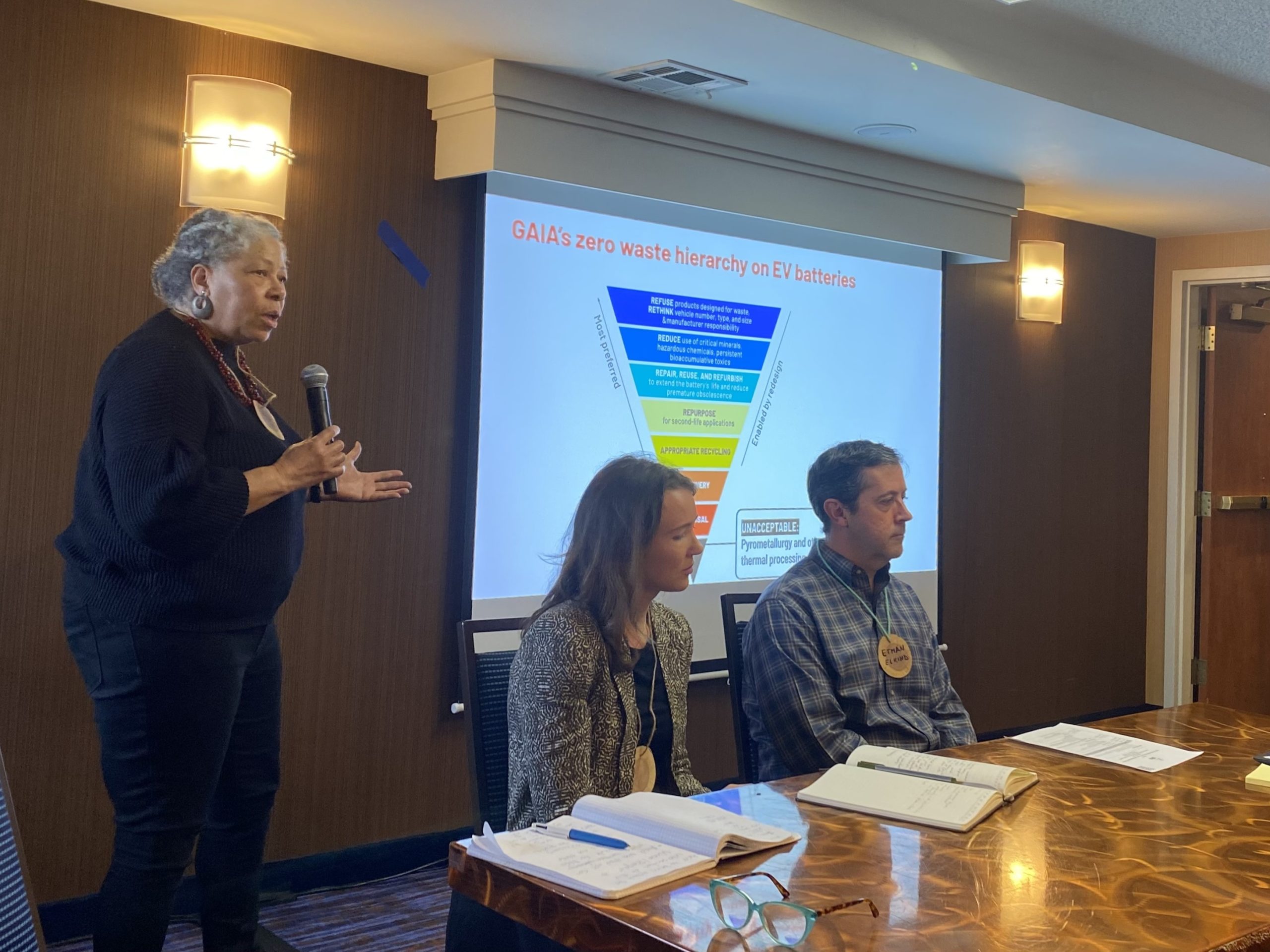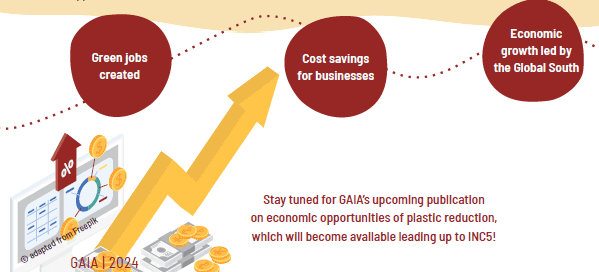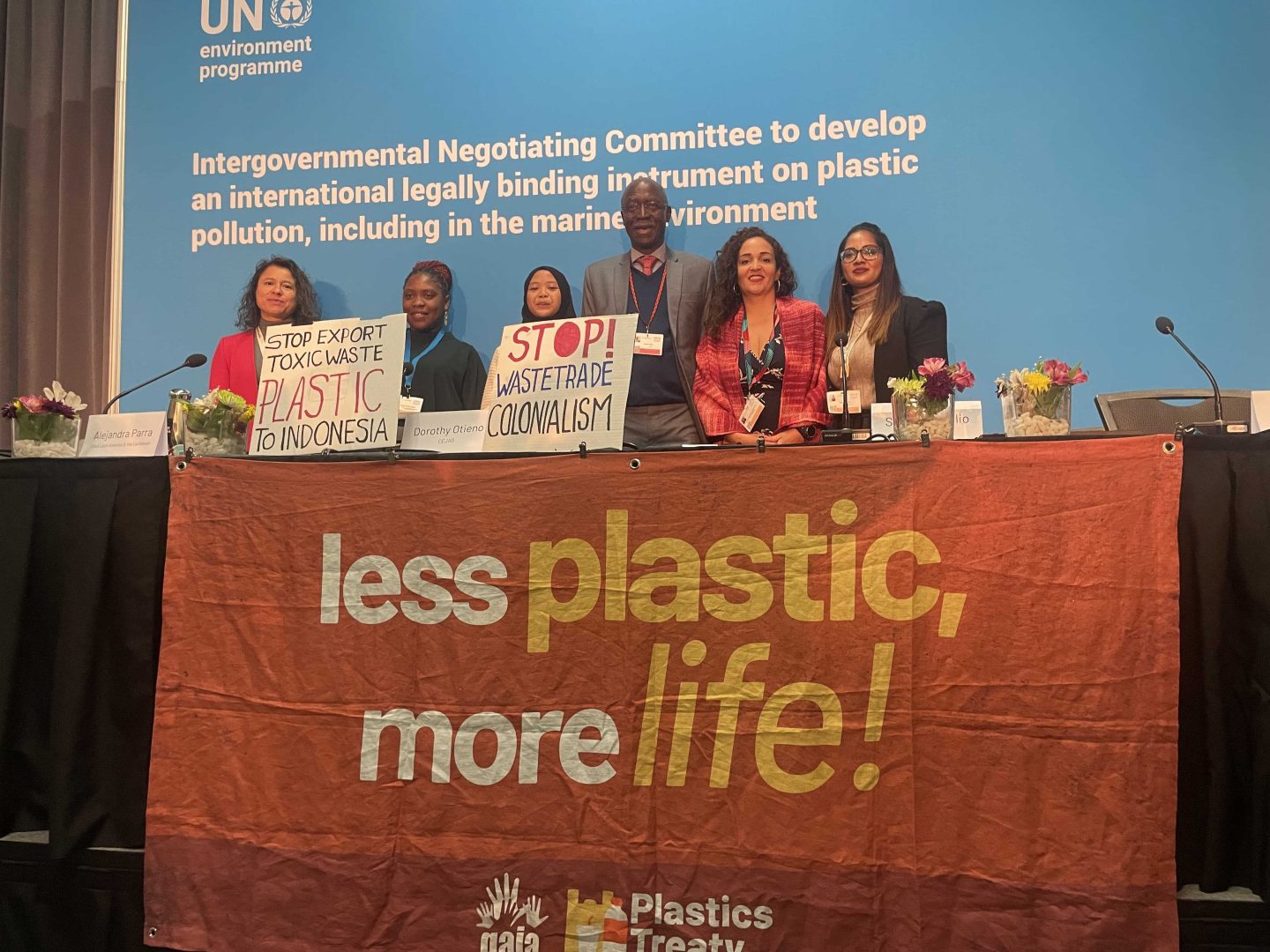FOR IMMEDIATE RELEASE: 29 April 2024
29 April 2024, Ottawa, Canada – In a powerful demonstration of unity and purpose, the Global Alliance for Incinerator Alternatives (GAIA) hosted a media briefing on the closing day of the fourth session of the Intergovernmental Negotiating Committee (INC-4) on Plastic Pollution. This event brought together a coalition of civil society organizations (CSOs) from the Global South, highlighting the critical issues and imbalances faced by lower-income countries in the treaty negotiations.
Speakers from the Center for Environment Justice and Development (CEJAD) in Kenya, Asociación Nacional de Recicladores in Chile, and River Warrior/GAIA Asia Pacific in Indonesia spotlighted the severe implications of plastic pollution that predominantly impacts their regions. They discussed the skewed dynamics between the Global North and Global South, pointing out the exploitation faced by less economically powerful countries.
Throughout the briefing, the speakers emphasized the need for equitable and effective participation in the treaty negotiations. They provided updates on the current status of these negotiations and discussed the potential implications of the treaty outcomes for their regions. Additionally, they unpacked what a financial mechanism is, the sources of funding, and what this funding can do. The group also stressed the need to be guarded against ‘false solutions’, such as plastic credits and waste-to-energy (WtE) incineration, which they argued impose additional environmental and health burdens on communities in the Global South. Instead, they advocated for genuine changes that address the root causes of plastic pollution.
The briefing also underscored the crucial roles of marginalized groups, including waste pickers and indigenous populations. It stressed the importance of incorporating these communities into the development of solutions that ensure a just transition to sustainable waste management practices. Moreover, the devastating effects of waste colonialism were discussed in detail, providing compelling evidence of how this practice exacerbates environmental crises and infringes upon the health and rights of local communities.
This gathering was not merely a forum to voice concerns but also served as a decisive call to action for leaders of the Global South. The group urged global leaders to recognize and rectify the imbalances that hinder effective international cooperation on this urgent issue.
QUOTES:
- Dorothy Otieno, CEJAD, Kenya: We need a dedicated fund to ensure that resources are readily available for developing countries to meet their obligations under the plastics treaty. Kenya, along with other countries in the global south, is dealing with a crisis that we did not create; therefore, we need to ensure that this financial mechanism is put in place to give us a chance to implement the treaty obligations.
- Aeshnina Azzahra, River Warrior Indonesia, GAIA Asia Pacific: Please stop waste colonialism. We, the youth, want to live in a healthy and plastic-free future. Let us play in a clean river and breathe in fresh air with no microplastics in it. I hope that with this INC, we can all open our hearts and minds to solve plastic pollution.
###
Media Contacts:
GAIA Africa: Carissa Marnce, +27 76 934 6156, carissa@no-burn.org
GAIA Asia Pacific: Sonia G. Astudillo, +63 9175969286, sonia@no-burn.org
GAIA América Latina: Camila Aguilera, +56 9 5 111 1599; camila@no-burn.org
GAIA Global: Claire Arkin, +1 973 444 4869, claire@no-burn.org
About GAIA:
GAIA is a network of grassroots groups as well as national and regional alliances representing more than 1000 organizations from 92 countries. With our work we aim to catalyze a global shift towards environmental justice by strengthening grassroots social movements that advance solutions to waste and pollution. We envision a just, Zero Waste world built on respect for ecological limits and community rights, where people are free from the burden of toxic pollution, and resources are sustainably conserved, not burned or dumped. www.no-burn.org




























